Spring feelings
It's beemn raining all day , which is very unusual for Arvidsjaur. Most of the annual preciritation seems to come down as snow during the winter here. But today was a fall-like spring day, that you can enjoy with some candles or a fire in the fireplace just because you know it's spring.
The weather forecast says that the warmth will arrive in Arvidsjaur this weekend. The spring is over and it is time for pasturage...here are some photos of the pets being set loose on May 29 last year:
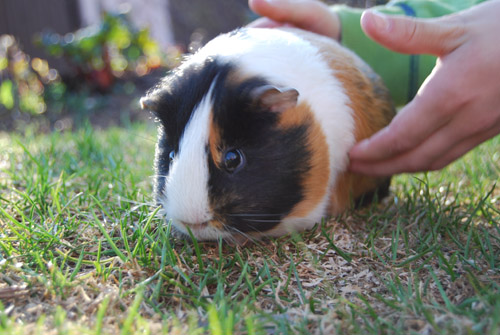
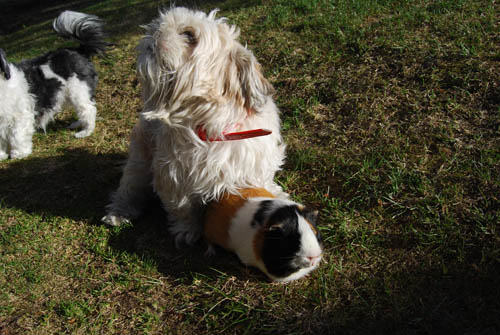
The weather forecast says that the warmth will arrive in Arvidsjaur this weekend. The spring is over and it is time for pasturage...here are some photos of the pets being set loose on May 29 last year:


The summer is made!
Finally I am a canoe owner. We had the canoe on home delivery, which meant we had to go to Umeå, 300 km away to get it. Had it been anything besides a canoe we wouldn't have bothered, but since there are so few companies actually selling canoes up here in the wilderness it felt like going next door to get it. This is the beauty in question:
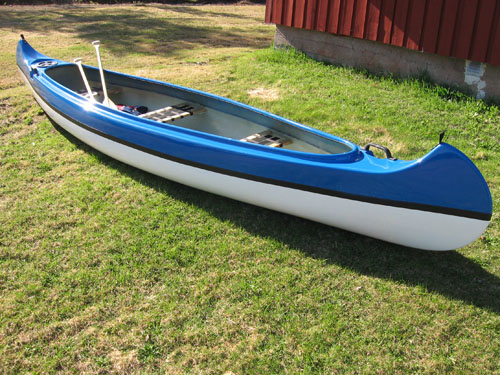
Ah, it is nice!
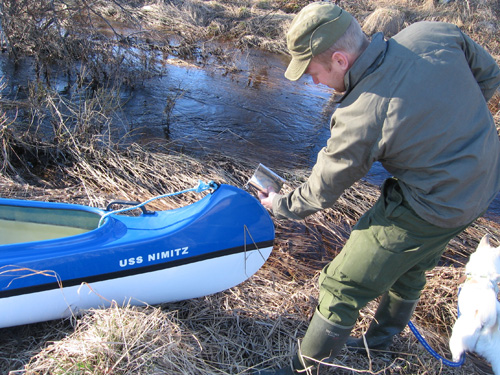
The baptism
The maiden voyage took place in one of the smallest creeks on earth, a stone's throw from home. Not the best idea, we realised when we had to carry the canoe more than half the way :)
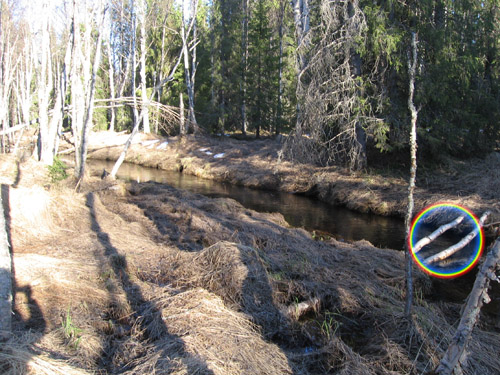
One of many obstacles...

Ah, it is nice!

The baptism
The maiden voyage took place in one of the smallest creeks on earth, a stone's throw from home. Not the best idea, we realised when we had to carry the canoe more than half the way :)

One of many obstacles...
GPS trip
We are in the process of making a new accommodation brochure, where the GPS coordinates for the different places will be included. Consequently, we went for a little ride to collect them. This is a couple of photos from the trip:
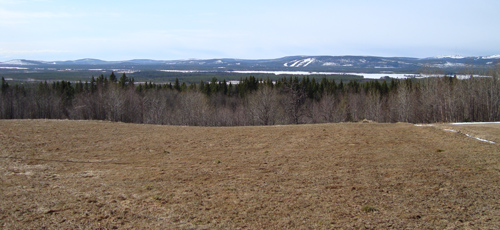
The view from Akkavare, the opposite direction of the usual view from Lillberget in the centre of Arvidsjaur.
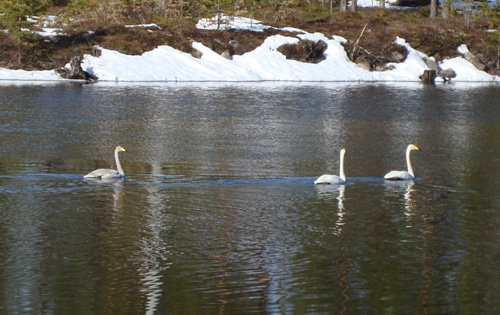
Swans. You had to sneak up on them, they wanted to swim away. Mom, dad and baby swan.
When I saw this picture I thought that the baby should have left "home" already, so I went to wikipedia for a quick answer. Apparently the time the swans stay with their parents is different from case to case. Here is the piece of text:
" Whooper swans pair for life, and their cygnets stay with them all winter; they are sometimes joined by offspring from previous years. Their preferred breeding habitat is wetland, but semi-domesticated birds will build a nest anywhere close to water. Both the male and female help build the nest, and the male will stand guard over the nest while the female incubates. The female will usually lay 4-7 eggs (exceptionally 12). The cygnets hatch after about 36 days and have a grey or brown plumage. The cygnets can fly at an age of 120 to 150 days."
Interesting...

The view from Akkavare, the opposite direction of the usual view from Lillberget in the centre of Arvidsjaur.

Swans. You had to sneak up on them, they wanted to swim away. Mom, dad and baby swan.
When I saw this picture I thought that the baby should have left "home" already, so I went to wikipedia for a quick answer. Apparently the time the swans stay with their parents is different from case to case. Here is the piece of text:
" Whooper swans pair for life, and their cygnets stay with them all winter; they are sometimes joined by offspring from previous years. Their preferred breeding habitat is wetland, but semi-domesticated birds will build a nest anywhere close to water. Both the male and female help build the nest, and the male will stand guard over the nest while the female incubates. The female will usually lay 4-7 eggs (exceptionally 12). The cygnets hatch after about 36 days and have a grey or brown plumage. The cygnets can fly at an age of 120 to 150 days."
Interesting...
